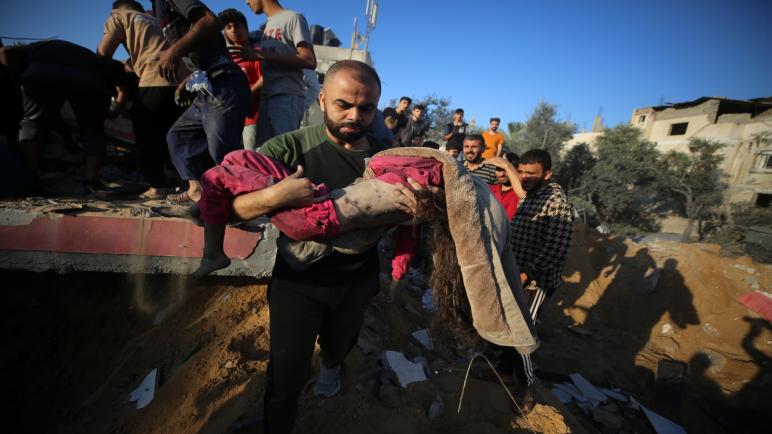NO: 60/2019
Date: 17 Oct 2019
Press release
During a workshop organized by the International Commission
Specialists stress the need to develop a national plan to combat poverty in Palestine
Occupied Palestine / Gaza: During a meeting organized by the International Commission to Support Palestinians’ Rights (ICSPR), specialists emphasized that the practices of the Israeli occupation, its siege of the Palestinian lands, the absence of economic development plans, the state of division, and the sanctions imposed by the Authority on the Gaza Strip have caused the suffering of the Gaza Strip residents, whether employees and their families, or the families of the martyrs, the wounded, the freed prisoners and the poor.
The participants recommended the necessity of strengthening community work, and creating a community partnership with the government to work together to combat the issues of extreme poverty in Palestine, implement the Palestinian law, and not provide in-kind assistance to the poor, but rather create operational projects and train them and provide professional training courses for children of the poor to be active in the society.
This was during a workshop entitled: “Poverty and Human Rights in Palestine”, which was held today, Thursday, 10/17/2019, at the headquarters of the International Commission in Gaza City, attended by a number of politicians, jurists, and youth activists.
Dr. Alaa Hammouda, Coordinator of Training and Activities at the International Commission opened the meeting, welcoming the attendees, saying: “Today, Thursday, October 17 of 2019, marks the International Day for the Eradication of Poverty, which was approved by the United Nations General Assembly and occupies the first goal among the goals and objectives of the United Nations (17) adopted by world leaders towards achieving sustainable development and transforming the world.
On her part, Etimad Al-Tarshawi, Director General of Directorates at the Ministry of Labor, spoke about poverty indicators in Palestine, confirming that the poverty rate in the West Bank is 13.9%, while in the Gaza Strip it reached 53%, meaning that it is 4 times higher than the poverty rate in the West Bank, and the poverty rate in extreme cases is 5.8 in the West Bank, and 33.8 in Gaza, meaning it is 6 times higher than the poverty rate in the West Bank.
She also indicated that the level of monthly Palestinian spending per capita is 171 Jordanian dinars in both the West Bank and Gaza Strip, and the average monthly spending in the West Bank is 159 Jordanian dinars, and in Gaza 91.2, meaning that it is very low.
Moreover, spending on food in Palestine amounted to 31% of the average monthly spending per person, by 29% in the West Bank and 36% in the Gaza Strip, followed by spending on transportation and communications by 19%, and on housing by 9%.
She explained that there was an increase in per capita spending in the West Bank between 2011 and 2017, while it decreased in Gaza, indicating an increase in total per capita cash spending in 2017 compared to 2011 in the West Bank, and the average per capita spending increased from 188 Jordanian dinars in 2011 to 220 dinars in 2017, while in Gaza, total per capita cash spending decreased in 2017 compared to 2011, from 110 Jordanian dinars to 91 dinars.
The Chairman of the Board of Directors of ICSPR Lawyer Salah Abdel-Atti, spoke about human rights and poverty, stressing that the siege and division had led to an unprecedented deterioration of economic, social and cultural rights, especially in the Gaza Strip, due to the occupation’s policies and procedures.
Abdel-Atti said that the Palestinian division has produced a set of social problems, such as domestic violence, high crime rates, increasing divorce rates, drug abuse, in addition to a group of psychological pressures, loss of confidence.
He affirmed that poverty is a fundamental violation of all basic human rights, whether the right to housing, health, education, mobility, a decent living, etc.
Saeed Abu Gaza, an expert on development issues, explained that Palestine historically was not suffering from the phenomenon of poverty, pointing out that the impoverishment of the Palestinian people began with the Israeli occupation of the Palestinian lands, and the Israeli blockade during 13 years contributed to the increase in the impoverishment of the population of the Gaza Strip.
He indicated that the impoverishment of the Palestinian people is a programmed process to undermine the struggle, steadfastness and strength of the Palestinian people, explaining that poverty and eradicating it is one of the basic goals that the United Nations.
He pointed out that the efforts made by governmental, international and local institutions are predominantly relief in nature and only meet about 50% of the basic needs of poor families, stressing that what is required is a comprehensive national plan to combat poverty, and its inclusion within government plans.











